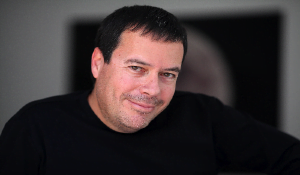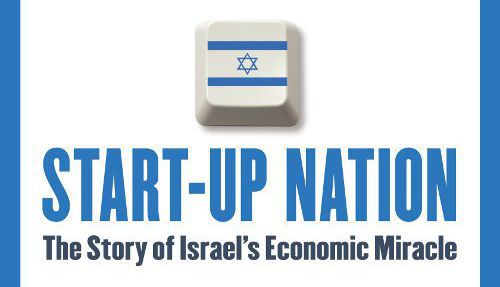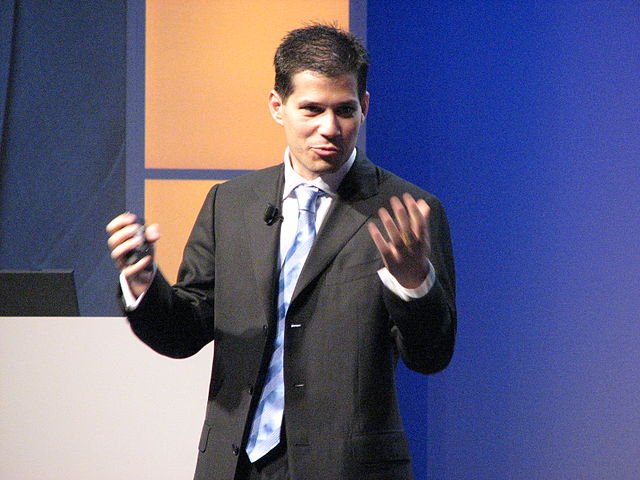The term “Startup Nation” has become synonymous with Israel, and rightly so, as the country has a startup for every 1,800 people and never stops to stun the world with revolutionary breakthroughs. However, almost five years after the release of the book “Start-up Nation”, the gripping account of Israel’s unprecedented economic success, some experts are warning the country may lose its prized title, unless important changes are implemented.
Just last week at the annual Herzliya Conference in Israel, a giant assembly of all the movers and shakers in the Israeli government, one of the panels wasn’t addressing the usual national and foreign policy issues. As Shai Agassi, the founder of the world’s foremost, but failed battery-powered car company Better Place, sat next to Yanki Margalit, Chairman of the highly anticipated SpaceIL project to the moon, a discussion on the future of the Startup Nation quickly went sour. The usual positive outlook and atmosphere of encouragement that is felt when the tech moguls get together took on a darker shade as both Agassi and Margalit began to ominously outline their fears for Israel’s tech scene.
The trappings of a socioeconomic bubble
As Margalit put his frustrated concern into words, “We have turned into dismantled tribes with enormous social and economic gaps. The Israeli ethos that built a tribal society around one bonfire has fallen apart, and unless we change things, we cannot maintain our high tech society.” Although Margalit is referring to the rifts between the upper and lower socioeconomic classes of Israeli society, the latter bitter with the former’s refusal to recognize the economic disparities that make it difficult to round out the month, his projection on the economic effects of this societal reality may indeed be true. As the baby boomer generation of the world attempts and succeeds at adjusting itself to the dynamic and Internet-driven nature of the modern workforce, Israel is still missing a good portion of its workforce, which may be the reason that large companies aren’t popping up here.
And Margalit isn’t the only one who is worried. In an interview with “Al-Monitor” on the eve of Israel’s 66th birthday, economist Professor Dan Ben-David warns that the Startup Nation’s success could be toppled by troubled socioeconomic policies: “When I deal with the socioeconomic aspect of Israel, I have the feeling that we’re letting the country slip through our fingers. It’s ironic. On the one hand, this really is the ‘startup nation.’ We are on the forefront of developments in high-tech and medicine. At the same time, however, there is another country here. What we have, in effect, is two countries.” The effect of what Ben-David calls having “two countries” is that while one of the countries perpetuates itself on the fruits of high tech and innovation, the other stands idly by, putting Israel at the bottom of OECD productivity ratings in the developed world.
Shai Agassi may have read Ben-David’s comments before the conference, because he also refers to creation of “separate countries”, but this time three separate countries, “I think that we have reached a point in which Israel is divided into three societies, almost separate states.” As Agassi imagines it, if these three states were placed on one pyramid, the affluent high-tech community would be the top tier, the Arab and religious communities would be in the bottom tier and the struggling middle class, of course, sandwiched in the middle. However, Agassi is quick to mention that this is the moment for all of these tiers to unite into one, technologically and economically driven Israel, but not for the reasons you may be thinking of.
Apple or Exxon state?
Agassi’s assertion that Israel has reached a once-in-a-lifetime opportunity is driven by the recent discovery of natural gas reserves off Israel’s coast, the Leviathan gas field. While the debate over who will control the gas profits has since been decided, with all of the profits from gas exports to go straight into the government’s bank account, Agassi is convinced that this is Israel’s “sliding door moment” to become either a high-tech nation or an energy-exporting nation. “All over the world, countries are in the position to choose the path of innovation or energy. And many countries at this critical moment, will make the wrong decision.” Agassi believes that at this crossroads of becoming “either an Apple or Exxon state” the Israeli government must put this money inflow into a fund that will not only see that Israel’s high-tech sector is here to stay, but will also educate the bottom and middle of the pyramid, as he put it, to actively enter the workforce of innovation.
Educating the global minds of the future
Sign up for our free weekly newsletter
SubscribeWith a related tangent on Agassi’s comments, Yanki Margalit hoped to offer a different perspective explaining why he believes that economic and social gaps are only exacerbated by the narrow educational curriculum offered in Israeli schools. Concern with the shortcomings of the Israeli education system is not new. Since the 1990s, Israel’s test scores in international mathematics and reading tests are among the lowest in the developed world, especially those of Arab and ultra-Orthodox backgrounds.
Margalit stressed the importance of integrating these communities into the workforce by providing them with the tools they need to participate at an early age. “We need a real curriculum that is based on science, maths, art, programming, values, English, everything,” he said. “We can’t take it for granted that the talent we need for the future will already be here. We have to educate them and foster outstanding talent, not when they reach the Weizmann Institute, but earlier, in the kindergartens.” He also added that instead of creating a “ghetto of Jewish minds,” Israel should strive to attract top talent from around the world and serve as a global hub of intellectual exchange, regardless of religion or ethnicity.
“I hear too many people talking about the ‘brain drain’, [people] who like to treat Israel like a ‘ghetto of minds’. Instead, let’s bring the experts here and let’s encourage our great minds to leave Israel. I would like to claim that the ideal model for Israel as a world power in high tech is a global hub of innovation that both imports and exports knowledge and seeks to integrate itself into the larger international community.” Margalit argues Israel should strive to become an “open ecosystem”, to invite, as he put it, Chinese engineers, Indian doctors and American salespeople, to work in their companies, just as international companies have already begun to hire talented Israeli programmers and researchers.
For Israel, peace is the lifeblood of innovation

Yanki Margalit
However, Margalit finished the talk with what he and others consider to be the major obstacle to the perpetuation of Israeli innovation, the lack of peace. According to Margalit, the topic of peace has become taboo. “I feel the pain of an entire generation that believes in the word ‘peace’ but thinks that it’s not politically correct to talk about it. We have to look at the bigger problems of humanity, whether it’s water or nutrition or democracy. Those are the real major problems and those are high tech problems. Peace is critical and crucial to high tech. If we do not fight for peace and coexistence, high tech will not be able to survive.”
Unfortunately, many of their concerns may be well founded. With daunting social problems like staggering housing prices and worrisome productivity issues, Israel has some tough decisions to make in the coming years – decisions that can’t be resolved with mobile apps or big exits. However, amid the rising concerns about Israel’s educational infrastructure and growing economic disparity, there are still many who are adamant that the Startup Nation is here to stay, despite its challenges. As Yaron Samid, founder and CEO of BillGuard and a number of other successful startups, once told NoCamels: “Startups are as here to stay as any other part of the ingrained Israeli culture, because our whole nation is one big startup. Israelis have, and always will be, entrepreneurs.”
Photos : David Terrar/ Daniel Bar-On
Related posts

Editors’ & Readers’ Choice: 10 Favorite NoCamels Articles

Forward Facing: What Does The Future Hold For Israeli High-Tech?

Impact Innovation: Israeli Startups That Could Shape Our Future





Facebook comments